PLAN & PREPARE
Flip-Flops: An Alternative A.T. Thru-Hike
April 10, 2025
Are you or someone you know getting ready for a flip-flop thru-hike? Appalachian Trail (A.T.) flip-flop hikes offer multiple advantages over “traditional” northbound or southbound thru-hikes. Hikers can take advantage of milder weather, have a more flexible time frame to complete their thru-hike, and start their journeys on more moderate terrain.
Flip-flop thru-hikes are also great for the Trail itself and Trailside communities. Thru-hiking outside of the thru-hiker “bubble” helps reduce overuse impacts on the footpath and overcrowding at shelters and campsites, and visiting communities in the “off-season” helps support hiker-focused businesses during periods of low visitation.
Whatever flip-flop itinerary you choose (or create), here are some general tips for making the most of your hike.
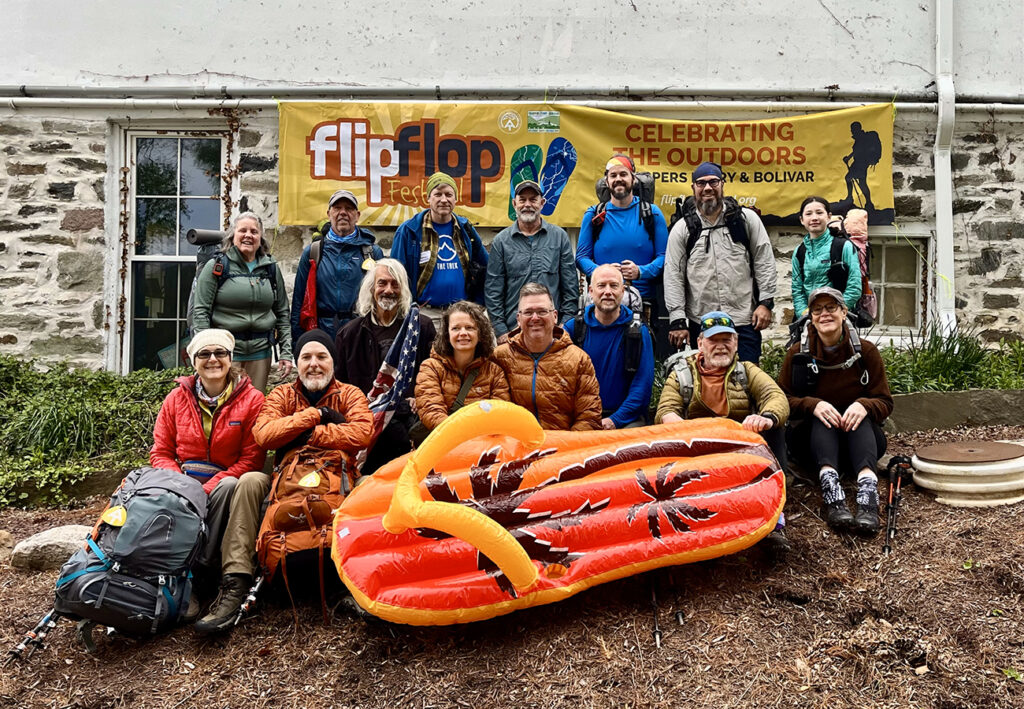
Start Your Hike with us at the Flip-Flop Kickoff!
April 25-27, 2025
This annual event held in Harpers Ferry and Bolivar, West Virginia, and Brunswick, Maryland, is a celebration of the A.T. and flip-flop hiking itineraries. It’s the perfect place to begin (or dream about) your own flip-flop adventure!
The 2025 Kickoff will again feature a series of hiking workshops hosted by the Appalachian Trail Conservancy (ATC), including pack shakedowns by Potomac Appalachian Trail Club (PATC) ridgerunners, and a cookout nearby. Hikers begin their adventures on the final day of the event with a send-off breakfast hosted by the town of Harpers Ferry! Check out the event website for this year’s schedule and more information.
Whether you attend Kickoff or not, if you start your hike in Harpers Ferry, be sure to stop by the ATC Headquarters and Visitor Center on Washington Street to pick up your A.T. hangtag and have your hiker photo taken. For parking and lodging information, click here.
Hiking & Helene
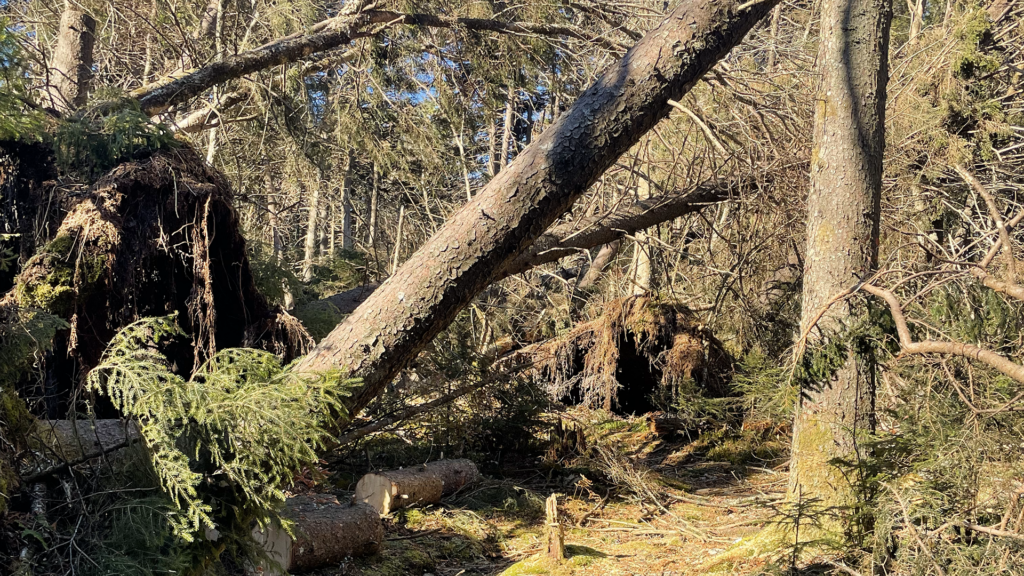
Photo by Anne Sentz shows Hurricane Helene damage near Unaka Mountain.
In September 2024, Hurricane Helene brought catastrophic damage to areas of the A.T. in North Carolina, Tennessee, and southwest Virginia. Some Trail sections are still closed, with detours in place. By flip-flopping and starting north of the damage, you can give the A.T. more time to heal and crews room to work.
However, the work to be done to repair the Trail and the A.T. landscape where the storm hit will span multiple years. That work will not be complete by Fall 2025 when some flip-flop hikers and southbounders will be hiking the southern half of the Trail. Be prepared by reading our Hiking & Helene page and checking for updates in our Helene Trail Alert.

Photo by Laurie Potteiger.
Getting to the Trail
While flip-flop itineraries provide a lot of advantages to both hikers and the Trail, they also require a bit more transportation planning. Visit our transportation page for information on getting to/from your starting and ending locations for every part of your hike. You can also overlay parking information on our free online interactive map to help plan your trip.
Easing into your hike
Taking it slow at the start of a trip is good advice for any hiker, but critical for someone setting out on a six month journey. Your body needs time to adjust to the rigors of day-in, day-out backpacking. Ridgerunners at Flip Flop Kickoff and the ATC share their general tips for staying safe and avoiding injuries.

Feet by Ben Benvie.
- Stay hydrated and wear sun protection (sunscreen, long sleeves, a hat, etc.). Ridgerunners in the mid-Atlantic report helping out dehydrated flip floppers on hot days each spring. Tree leaves have not unfurled yet, leaving hikers exposed to the sun. Don’t underestimate the power of the spring sun and try to push through the heat. Instead, take a break or stop for the day – you have plenty of time to make up miles later in your hike!
- Limit your mileage for the first two to three weeks, even if you feel you can do more. It can be tempting to push miles at the start of your hike. You’ll likely be eager to get going and you may even get passed by a few early season NOBO (northbound) hikers who are doing big mile days. By keeping your mileage low in the beginning (~10 miles or less) and allowing your body to adjust and gain strength, you’ll have a better chance of avoiding common overuse injuries like shin splints and tendonitis.
- Be prepared for cold nights. While spring days in the Mid-Atlantic can be hot, the nights often drop below 40 degrees Fahrenheit. Keep your cold weather gear until at least mid-May, when the nights should start to consistently stay warmer.
- Be prepared for dry conditions in the Fall. Water should be plentiful in the spring when you first set out. However, Fall often brings dry weather to the Trail, especially through the south and the Mid-Atlantic. Talk to other hikers or check comments in FarOut about water sources ahead of you and be sure to always carry an extra quart. Check the weather before leaving town for fire conditions (hot, dry, windy weather) and burn bans. Consider not having a campfire if the weather has been hot, dry, and windy, regardless of whether there are official burn bans in place.
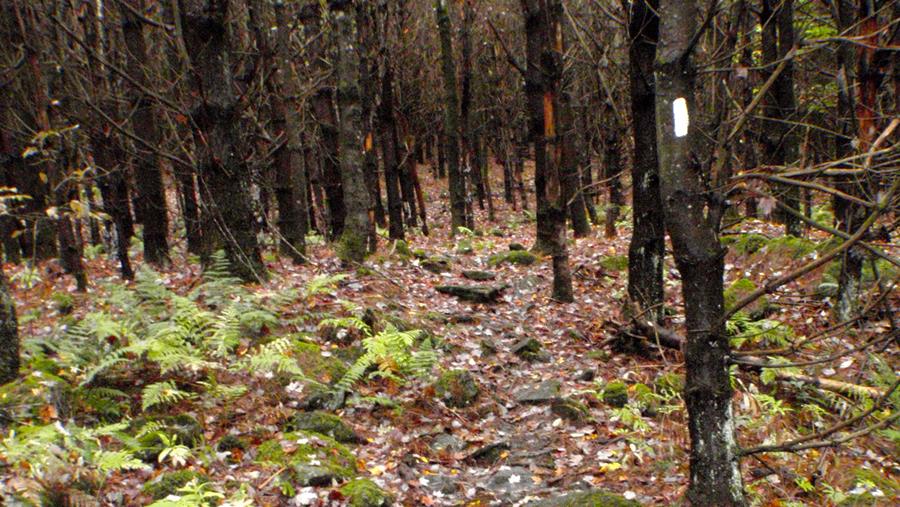
Leave No Trace with the Seasons
How you apply the seven Leave No Trace principles will vary slightly depending on the section of Trail and the time of year you are hiking. For example, most trails in Vermont are closed during mud season, hikers on the A.T. in October should wear blaze orange for hunting season safety, and snow/cold weather can linger into late spring and arrive early in late fall.
Arrive prepared for your hike by checking the weather and packing the 10 essentials.
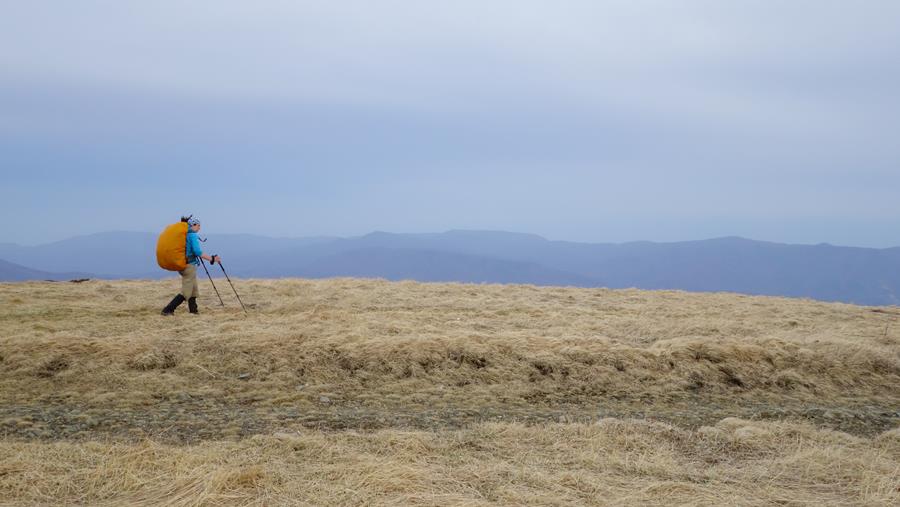
Solo hiker on Big Bald. Photo by Douglas Wright.
The Benefits of Solitude
Many hikers choose a flip-flop itinerary to avoid the main “bubble” of northbound (NOBO) thru-hikers leaving Georgia in the spring. Flip-flop hikers can take advantage of a less-crowded Trail and connect with nature and the quiet simplicity of being alone in the woods. Take extra care to stay safe, especially if you’re hiking alone.
Keep in mind that not all hiker services are available year-round. If you are on a section of the Trail before or after the traditional hiking season (typically spring to early fall), be sure to call shuttles and businesses ahead of time to make sure they are still available.
More Tips for Planning Your Next A.T. Hike
Visit our Hiker Resource Library for in-depth information ranging from gear selection to health and safety tips. For aspiring long-distance A.T. hikers, view more from our hiker preparation series.
Discover More
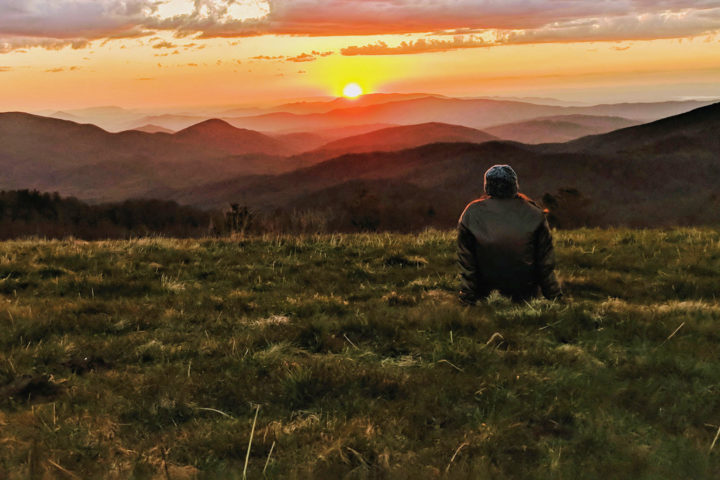
Plan and Prepare
Hiker Resource Library
A collection of resources for hikers to stay safe, healthy, and responsible on the Appalachian Trail.
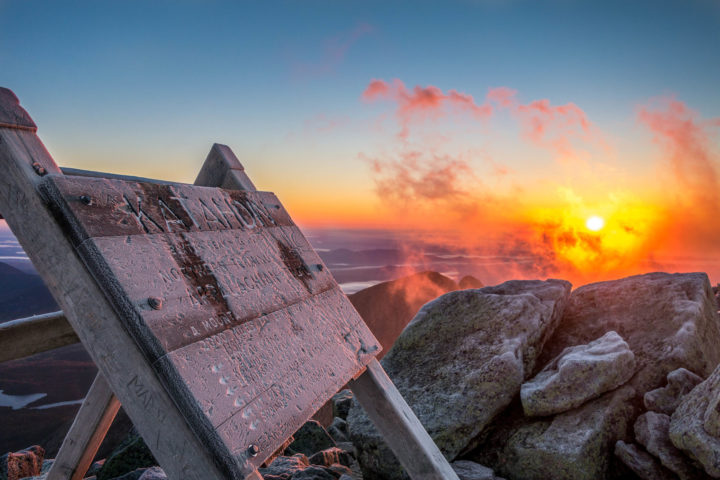
Plan and Prepare
Thru-Hiking
Thru-hiking the A.T. is the adventure of a lifetime. But trekking the 2,190+ miles of the A.T. is no easy feat — make sure you’re prepared!
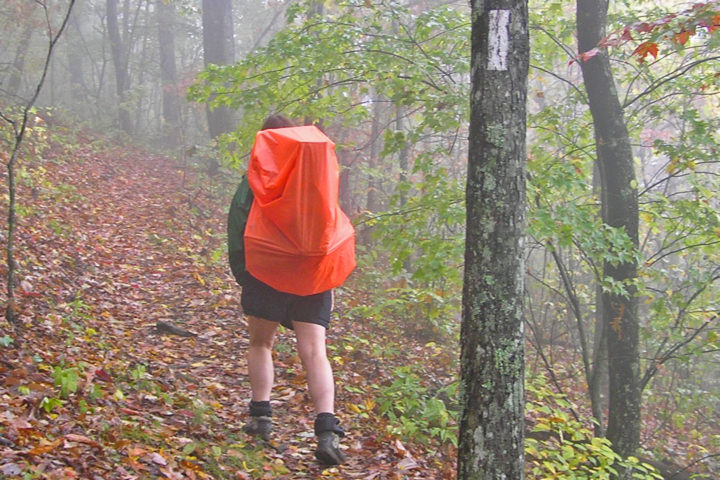
Plan and Prepare
Safety
Learn about the hazards you may face when hiking the Appalachian Trail and how to avoid or prepare for them is the best way to stay safe.
